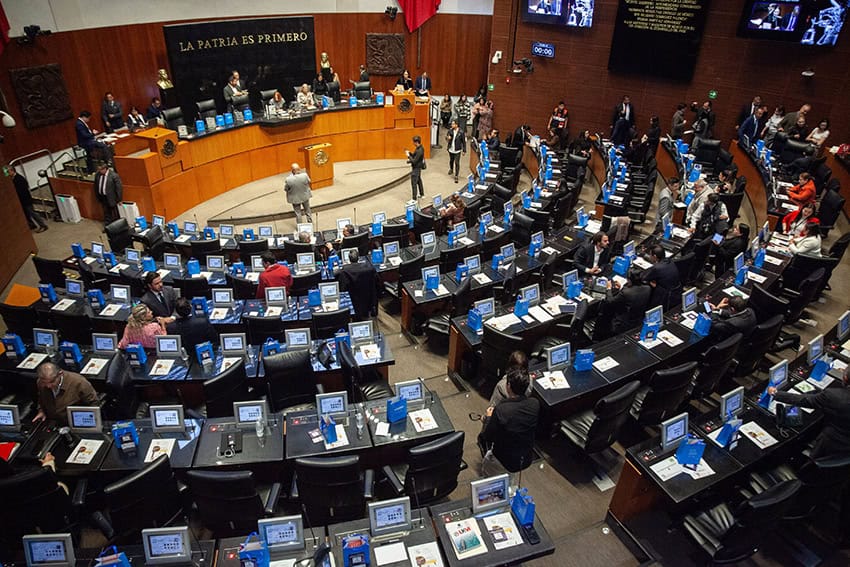Senators this week unanimously approved the Law to Prevent, Investigate and Punish Extortion Offenses, a new legal framework that standardizes the crime throughout the country, in an effort to protect Mexicans from telephone, banking and digital extortion.
The law also strives to protect victims who file charges by authorizing ex-officio investigations, meaning the complainant does not have to be identified. It will also punish public officials who collaborate in the commission of this crime or fail to report extortion crimes.

Those crimes include a wide variety of offenses, ranging from threats and protection rackets to more sophisticated techniques like “virtual kidnapping,” in which criminals convince their target to leave home and turn off their cell phone, then call family members of the target demanding ransom to free the supposedly kidnapped person. Officials reported earlier this year that extortion has increased over 80% in the past decade, though data is lacking since most cases go unreported.
This week’s 110-0 Senate vote returns the bill to the Chamber of Deputies, where lawmakers there will address the 21 amendments senators added to 15 articles — including harsher sentencing guidelines — as well as the addition of a transitional article.
Members of the Morena party comprising 67 senators celebrated the passage of the bill, the first comprehensive and uniform response to the scourge of extortion, which affects individuals, businesses, services and enterprises of all sizes, as well as transportation and the distribution of goods.
“This is a firm step towards closing the … legal loopholes that left families unprotected for years,” said Sen. Heriberto Aguilar.
The bill as approved by the Senate recognizes all modern forms of digital, telephone and banking extortion, including debt scams and carjackings. It guarantees that they will be investigated and punished without the need to demonstrate financial damage, while also addressing the psychological and moral effects on the victims.
“Extortion not only affects property, it deprives people of their peace of mind, dignity and sense of community,” said Sen. Enrique Inzunza, president of the Legislative Studies Committee.
Aguilar said the new law would establish a single criminal procedure throughout the country, eliminating differences that existed in state laws and correcting the inequality of criteria that had favored impunity.
The bill calls for the creation of special units, police officers, analysts and public prosecutors who would be trained, evaluated, certified and specialized in the investigation of extortion.
The bill also incorporates a comprehensive protection system for victims, including prompt attention from the authorities, and specialized support. It also grants officials the authority to immediately cancel telephone lines being used for extortion.
Additionally, resources obtained from the forfeiture of assets will be used to restore the rights of the victims.
Security Minister: Half of reported extortion lines are operating from prisons
According to a study published by Seven Publishing Group last year, extortion has become an easy and quick source of financing for organized crime, governments and political organizations, including political parties, as well as public officials who demand a “fee” to carry out services.
The study also found that more than 97% of the victims of extortion do not report the crime to the authorities.
The most common type of extortion, telephone extortion, is of particular concern to security authorities in Mexico because it most often originates inside prisons.
To address the issue, the bill prohibits inmates from having electronic devices and includes 6- to 12-year sentences for those violating the law, while also sanctioning prison officials and other staff who allow the entry of cell phones and other devices.
“Legal mechanisms and instruments [in the bill] will block illicit communications, prohibit access to electronic devices and ensure that prisons are spaces for control and social rehabilitation, not for criminal activity,” said Sen. Javier Corral, president of the Justice Committee.
The creation of a National Information System on Extortion, a specialized reporting center, and the design of a national prevention strategy are also contemplated in the legislation.
With reports from La Jornada, El País, N+ and El Financiero
